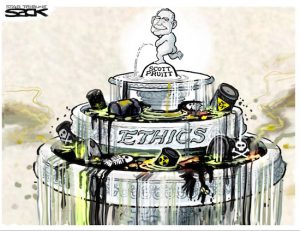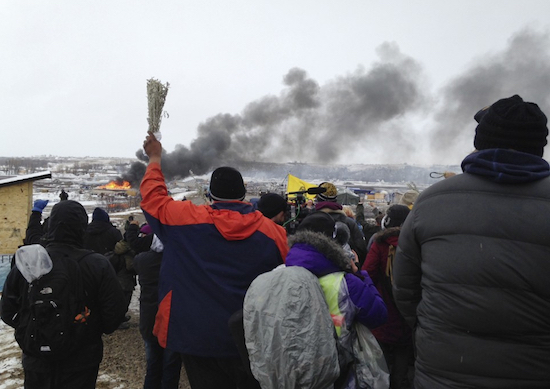
Park Slope synagogue cleans up its portfolio by divesting from Chase Bank
Kolot Chayeinu leads the way to green investing

A Park Slope synagogue is taking scripture about God’s green earth literally.
Congregation Kolot Chayeinu has pulled its money out of Chase Bank, the financial institution that helped underwrite the Dakota Access Pipeline. The divestment is part of a growing environmental movement designed to punish companies involved with the pipeline and the fossil fuel industry in general.
“This is the first time our community has decided to use its financial power to make change,” said Rabbi Ellen Lippmann, founder of the Eighth Avenue congregation. “We are not a large nor a wealthy congregation, but we hope and believe this divestment will make a difference to Chase.”
Kolot Chayeinu claims that it is the first Jewish congregation in the U.S. to divest from a bank over fossil fuel, which pollutes the air and contributes to global warming, according to virtually every scientist. The shul’s money will be transferred to Amalgamated Bank, whose mission is “to be the financial institution for progressive people and organizations: Those who are working and living to make the world more just, more compassionate, and more sustainable,” according to a statement.
“Amalgamated Bank was founded on the premise of creating financial opportunities and we’re excited to advance our mission for those who care about climate and sustainability to align their financial choices with their personal values,” said Keith Mestrich, the bank’s CEO.
It’s unclear how deeply hurt Chase Bank will be — or if the bank, with $2.53 trillion in assets, will even notice. Kolot Chayeinu declined to divulge its holdings. The bank, which did not return calls from the Brooklyn Eagle, lends money to oil companies, coal mining companies and other firms targeted by environmentalists. Chase loaned funds to Energy Transit Partners, the company building the pipeline, for example.
The synagogue’s move follows an effort by the city of New York to green up its portfolio. In January, Mayor Bill de Blasio announced that the city would divest $5 billion in pension holdings from companies tied to the fossil fuel industry. He also said the city would sue five oil companies to recoup money that will be spent to mitigate the expected effects of climate change.
The Bible is filled with passages calling on Man to protect the Earth, as well as verses about the morality of investing.
“You shall not destroy its trees by swinging an axe against them … and you shall not cut them down,” God reportedly said in Deuteronomy 20:19. And the subject of greed comes up repeatedly — sometimes using the environment as a metaphor, as in Proverbs 11:28: “He who trusts in his riches will fall. But the righteous will flourish like foliage.”
The decision by Congregation Kolot Chayeinu was initiated by its environmental advocacy group, Planet A, led by members Barbara Novick, Leslie Nuchow, Jessica Roff — and has the support of activists outside the synagogue.
“The fight for fossil fuel divestment has always been a moral battle,” said Bill McKibben, co-founder of the environmental advocacy organization 350.org. “And to see Jewish communities joining in solidarity with indigenous activists is truly compelling: some of the earth’s most ancient wisdom traditions finding common ground in defense of a common future.”
Full disclosure: This reporter has a bank account at Chase. Fuller disclosure: So does this newspaper’s editor. Fullest disclosure? So does pretty much everyone.
Leave a Comment
Leave a Comment



